Hyals is a woodcarving in Lime and Olive inspired by the Greek legend concerning the drowning of Herakles’ servant by water nymphs.
This piece was my introduction to woodcarving. I carved the hand first, modelling it on my own, and then built up the leaves and other items to settle it in and help tell the story. The initial spark of inspiration came from the painting by John William Waterhouse.
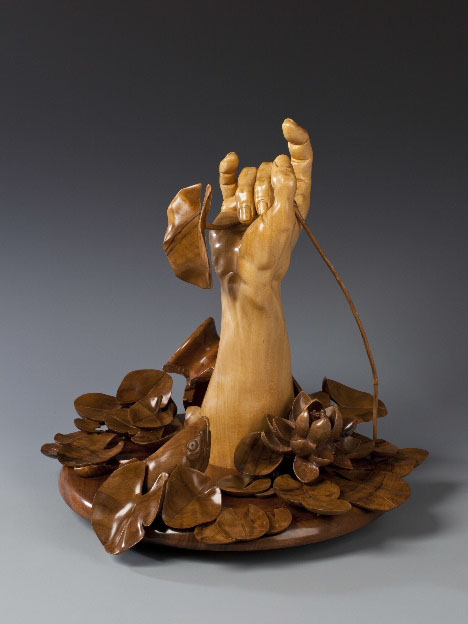
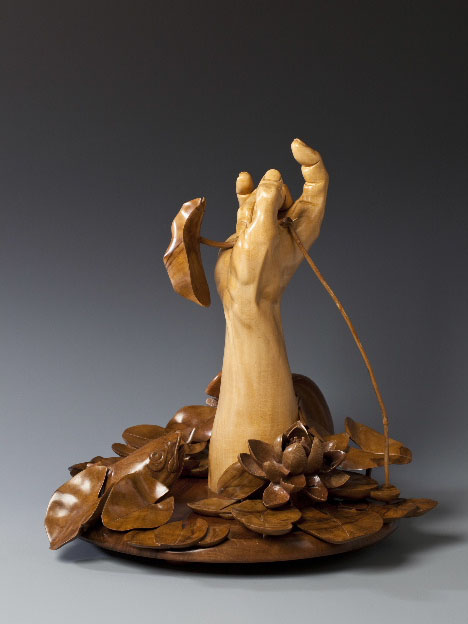
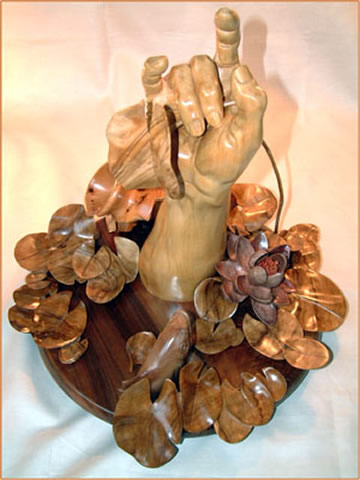
41 x 39 x 40cm (w x d x h)
Limewood (hand), Olive (leaves), Honeysuckle (stem), Lacewood & Padauk (Waterlily), Yew (pitcher), Apple (fish), Walnut (base)
2002
Shellac and Wax finish
Hylas
Theocritus, Idyll XIII (lines 32-75).
They disembarked on the shore, and each group prepared food
in the evening, and they all made a single place to sleep on the ground.
They found a stretch of meadow that was a fine source of bedding
and there they cut sharp sedge and dense galingale.
Fair-haired Hylas went to fetch water for the meal
for Herakles his master and for unyielding Telamon
(who were companions together ana dined always at one table);
he took a bronze water-jar. Soon he saw a stream
at the bottom of a slope; around it there grew many rushes
and dark celandine and pale maidenhair
and luxuriant celery and marsh-loving dog’s-tooth-grass.
In the midst of the waters the Nymphs were performing their dance,
the unmarried Nymphs, immortals, dangerous to country-dwellers:
Eunika and Malis and Nykheia whose face is the face of Spring.
And the boy held the wide-mouthed pitcher down to the water
eager to fill- it: but they all took hold of his hand:
for all of them were struck trembling in their tender hearts by desire
for the Argive boy. He fell into the black water
suddenly, as when a fiery star falls from heaven
suddenly, at sea, and one sailor says to his comrades
“let out the sails, boys, there’s a good wind coming.”
The Nymphs held the boy in their laps
as he wept, and with gentle words tried to console him;
while Amphitryon’s son alarmed about the child,
set out, holding his pliant bow like a Scythian,
and his club, which he always grasped in his right hand.
Three times he shouted “Hylas”, with all the resonance of his deep voice;
Three times the child heard him and & faint voice came
from the water, but though he was there, very close, he seemed far away.
When a fawn cries aloud, a ravening lion in the mountains
rushes out from its den to take an easy meal;
so went Herakles among the untrodden thornbrakes,
agitated, longing for the boy; he ranged far through the land.
Lovers will stop at nothing: how he wore himself out with wandering
through mountains and thickets! and Jason’s quest was forgotten.
The others filled the ship and it stood with its sails raised
but the heroes at midnight took the sails down again,
waiting for Herakles. But he went away wherever his steps led him
in madness: the cruel god was tearing his heart within him.
So Hylas is counted the fairest of all the Blessed;
And the heroes made fun of Herakles and called him “deserter”,
because he left the thirty-bench ship Argo
and went on foot to Kolkhis and to Phasis, the unwelcoming river.
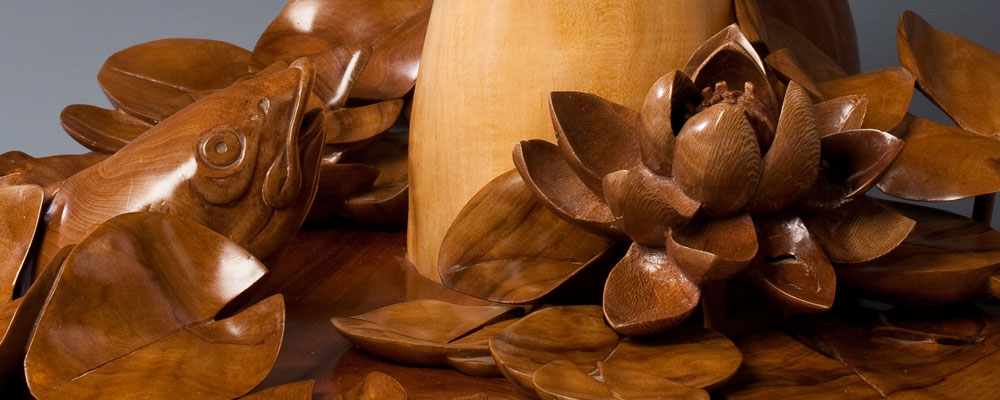
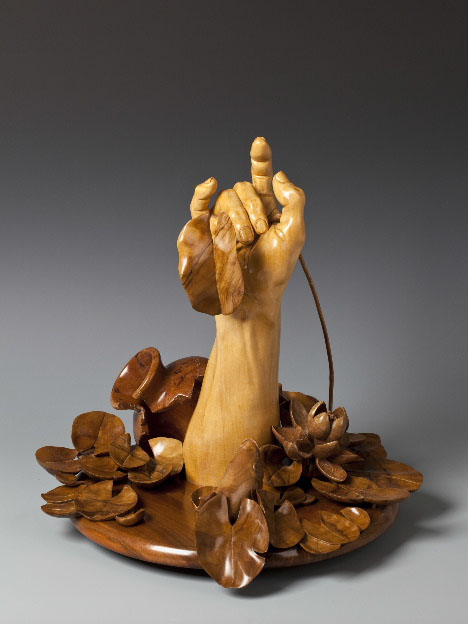
You must be logged in to post a comment.